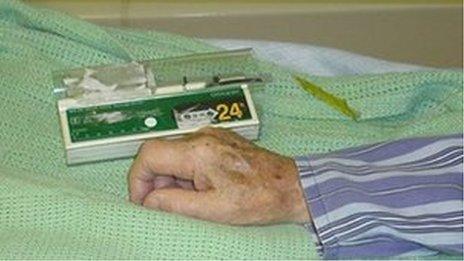A good death: Can guidelines really help?
- Published
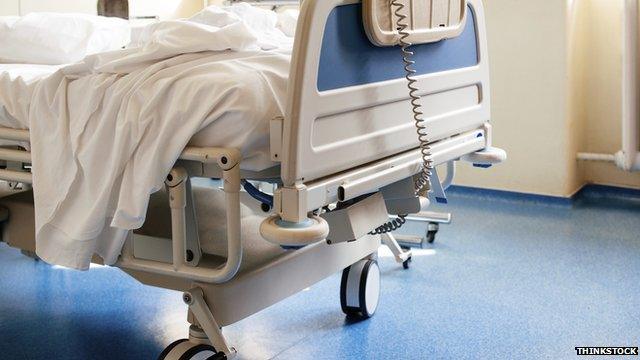
A new report suggests end-of-life care in the UK is the best in the world, pointing to high quality services provided by the NHS and hospice movement.
But underneath the praise is a long running argument about how best to provide a dignified and comfortable death.
There are many issues that can affect a person's last moments and the experience of their loved ones. For example, do patients want their relatives involved? When should medicines be stopped - if at all?
For more than a decade clinicians turned to a system called the Liverpool Care Pathway.
Among other things, it involved checklists prompting staff to consider whether invasive procedures and drugs should no longer be given to people in the last stage of life.
But two years ago it was abolished in response to fierce criticism.
An independent report suggested that, on some occasions, the balance had swung too far, from preventing unnecessary treatment to denying some people basic care.
It found some patients on the pathway had been left thirsty and deprived of food and water, while others were given sedative drugs they did not need.
Now the National Institute of Health and Care Excellence (NICE) is re-writing the rules for England.
Its draft proposals are wide-ranging. But can new guidance really improve how people die?
'Scapegoat'
Families had described loved ones being put on the Liverpool Care Pathway without their knowledge. Others viewed it as solely a tick-box exercise, that took health care staff away from people's last needs
But retired palliative care expert Dr Claud Regnard, writing just after the LCP was scrapped, said it was not the pathway itself that was to blame
He suggested the guidance was "made a scapegoat".
Instead Dr Regnard suggested, bad decision making, insufficient training and poor communication all played a part in the tragic cases.
And as he pointed out lists can be extremely important - asking if people would choose an airline that had no tick boxes to check all safety procedures were in place?
NICE accepts the problems were caused by the poor way the document was implemented - rather than a direct consequence of the pathway itself.
But the question remains, with increasing financial pressures on the NHS and concerns that staff are over-worked, whether these issues can once more get in the way of a dignified death.
Charities and the Royal College of Physicians warn training for healthcare staff must not be skimped.
And some have warned the focus on these caring skills has been displaced as more and more technical knowledge is required of nursing and care staff.
New approach
The new proposals make no mention of lists or tick boxes.
And much of the content comes as no surprise - there are calls for basic daily checks to make make sure patients are well hydrated and nourished.
Families might also be encouraged to be more closely involved in care if appropriate and safe - for example helping to give loved ones sips of water.
Throughout clear communication and involving patients and relatives in decisions is paramount.
While focusing on some simple, fundamental areas of care, NICE recognises there is still much we don't know about the final stages of life - particularly how to predict who is approaching their last few days.
And it suggests some drugs - for example those used to reduce fluid in the chest - might be causing more harm than good.
More research is needed to find out when best to give medicines and when best to withhold them, its experts say.
Discussing the end
The National Council of Palliative Care welcomes the new draft.
Its chief executive, Claire Henry, praised the shift away from ticking boxes to a focus on the individual.
She says it mirrors a cultural shift - people are more aware of these issues and want to make sure their loved ones have a comfortable death.
But she argues conversations need to start much earlier on - before people become ill.
Only then will they and their loved ones be aware of what they want in their last few days and know what to expect as death draws near.
- Published29 July 2015
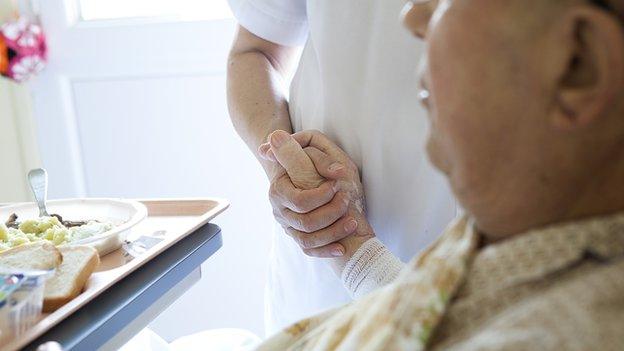
- Published6 October 2015
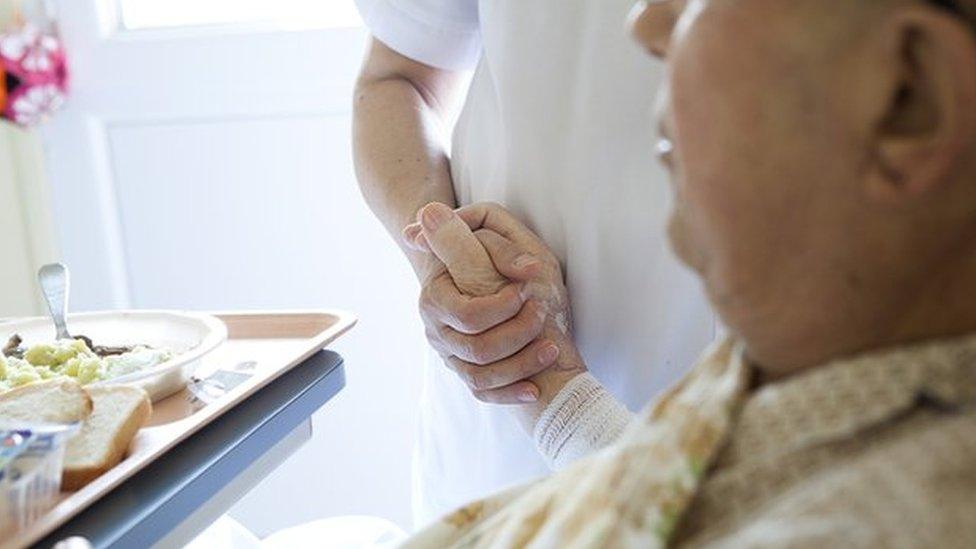
- Published27 January 2014
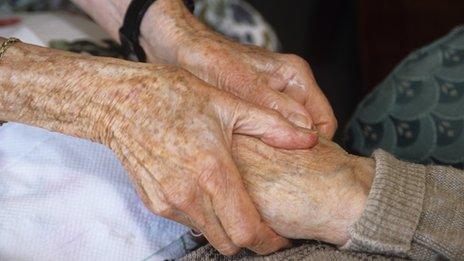
- Published13 July 2013
